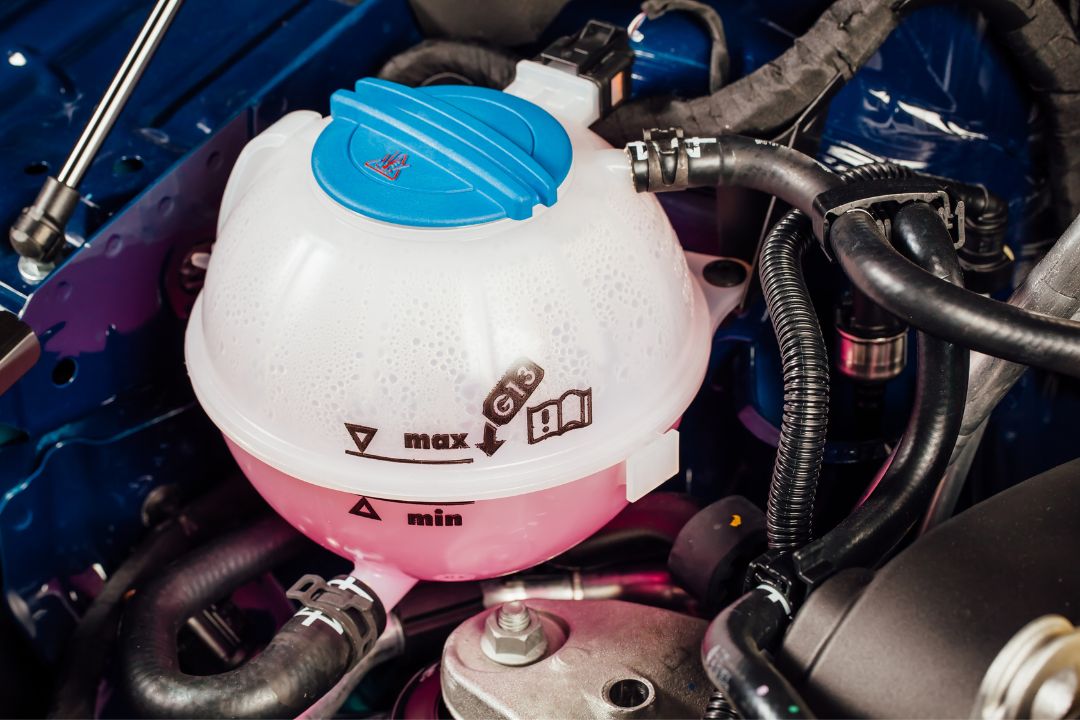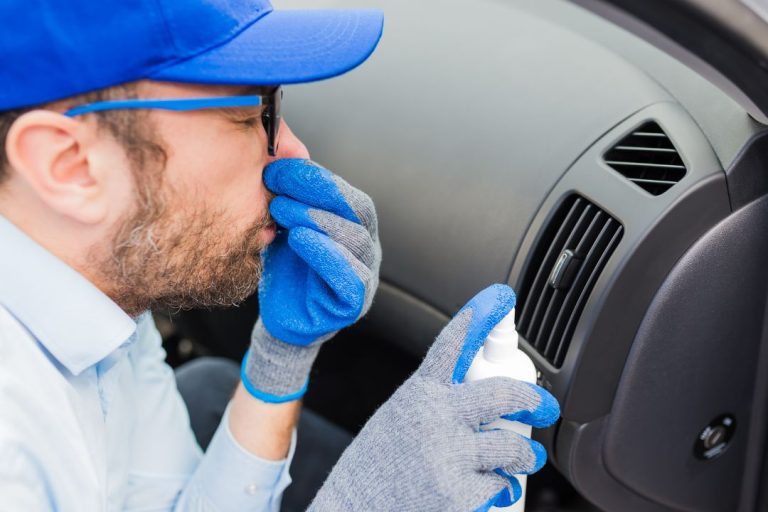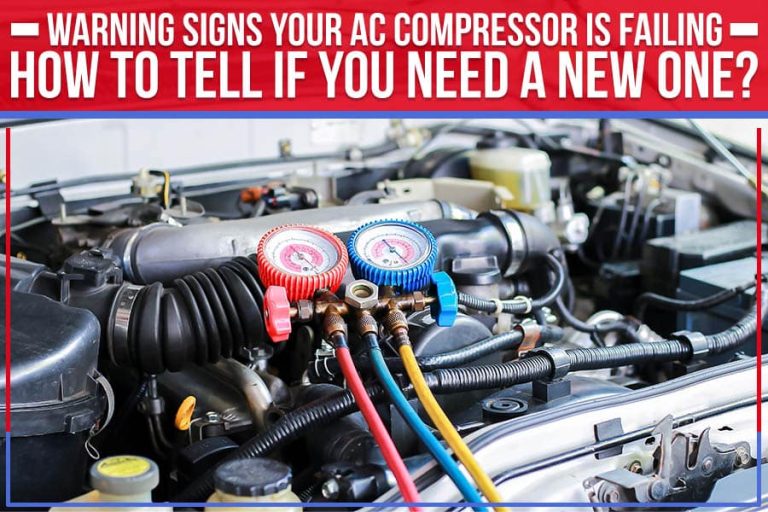Discover How Coolant Levels Impact Vehicle Performance
Low coolant levels can cause a car to shake due to overheating and engine misfires. A low coolant level means there is not enough coolant to properly regulate the engine temperature, leading to overheating.
This can cause the engine to misfire, resulting in the car shaking. Additionally, low coolant levels can also cause the engine to run inefficiently and potentially lead to further damage if not addressed promptly. Regularly checking and maintaining proper coolant levels is crucial to prevent these issues and ensure the smooth operation of your vehicle.
Understanding The Role Of Coolant In-Vehicle Performance
When it comes to maintaining optimal engine performance and preventing potential problems, understanding the role of coolant in your vehicle is crucial. Coolant, also known as antifreeze, plays a vital role in regulating the temperature of your engine, ensuring it stays within safe operating limits. In this blog post, we will delve deeper into the importance of coolant in maintaining optimal engine temperature, the various components of the cooling system, and how coolant prevents overheating and engine damage.
Importance Of Coolant In Maintaining Optimal Engine Temperature
Coolant is a key component in regulating the temperature of your vehicle’s engine. Its primary function is to absorb heat generated during combustion and transfer it to the radiator, where it is then dissipated into the surrounding air. Without proper coolant levels, your engine can overheat, leading to potential damage and reduced performance.
Cooling System Components And Their Functions
The cooling system of your vehicle consists of several crucial components that work together to maintain the optimal temperature of your engine. These components include:
| Component | Function |
|---|---|
| Radiator | Helps dissipate heat by transferring it from the coolant to the surrounding air |
| Water Pump | Circulates the coolant through the engine and radiator |
| Thermostat | Regulates the flow of coolant based on engine temperature |
| Cooling Fans | Assist in cooling the radiator by drawing air over it |
How Coolant Prevents Overheating And Engine Damage
Coolant prevents overheating and engine damage through several mechanisms. Firstly, coolant raises the boiling point of the water in the cooling system, allowing it to withstand higher temperatures without vaporizing. This ensures that the liquid coolant can continue circulating and dissipating heat properly.
Moreover, coolant contains corrosion inhibitors that protect internal engine components, such as the radiator and water pump, from rust and other forms of damage. This helps extend the lifespan of these crucial components and keeps the entire cooling system running smoothly.
Additionally, coolant lubricates the water pump, reducing friction and preventing premature wear and tear. This ensures that the pump can effectively circulate the coolant throughout the engine and radiator, maintaining optimal temperature regulation.
In conclusion, understanding the role of coolant in your vehicle’s performance is essential for maintaining optimal engine temperature and preventing potential issues. By ensuring proper coolant levels and regularly checking the condition of your cooling system components, you can keep your engine running smoothly and avoid potentially costly repairs.
The Link Between Coolant Levels And Vehicle Performance
The Impact Of Low Coolant Levels On Engine Performance
Understanding the link between coolant levels and the performance of your vehicle is essential for ensuring its longevity and smooth operation. Coolant, also known as antifreeze, plays a crucial role in maintaining the optimal temperature of your vehicle’s engine. When coolant levels drop below the recommended range, it can have a detrimental effect on your engine’s performance, leading to various issues, including car shaking.
Signs That Indicate Low Coolant Level As A Possible Cause Of Car Shaking
Car shaking can be an unsettling experience, but did you know that low coolant levels can be one of the underlying factors behind this issue? If you notice your vehicle trembling or vibrating excessively, it’s important not to overlook the possibility of low coolant levels. Here are some signs that indicate low coolant level could be causing your car’s shaking:
- Your engine temperature gauge is consistently higher than normal
- You notice unusual coolant leaks or puddles underneath your car
- Your vehicle’s heater is not functioning properly
- The coolant warning light on your dashboard is illuminated
- You detect a sweet, syrup-like smell inside your car
If you experience any of these signs along with the shaking of your vehicle, it’s crucial to have your coolant levels checked as soon as possible, as neglecting the issue can lead to more severe engine problems.
Common Reasons Behind Coolant Loss
Coolant loss can occur due to various reasons, and identifying the cause is vital for preventing future coolant-related issues. Here are some common reasons behind coolant loss:
- Leaking radiator hoses or connections: The coolant can escape through damaged or worn-out hoses connecting the radiator and the engine.
- Malfunctioning water pump: A faulty water pump can lead to coolant leakage and affect the overall performance of your vehicle.
- Cracked or damaged radiator: A compromised radiator can result in coolant leakage and cause your car to shake.
- Blown head gasket: A blown head gasket can cause coolant to mix with engine oil, leading to coolant loss and engine performance issues.
It’s crucial to address the underlying cause of coolant loss promptly to prevent further damage to your vehicle. Regular maintenance and inspections can help detect potential issues before they escalate, ensuring your car runs smoothly and safely.
Investigating Coolant Leaks: Identifying Signs And Causes
Low coolant levels can cause various issues in a car, including shaking and vibrations. If you’ve noticed your car shaking, it’s important to investigate if low coolant levels are responsible. Coolant, also known as antifreeze, plays a crucial role in regulating the engine’s temperature and preventing it from overheating. In this section, we’ll explore visual inspections and pressure tests that can help identify coolant leaks, as well as the common causes behind them and their effects on a vehicle’s performance.
Visual Inspection For Coolant Leaks
One of the first steps in investigating coolant leaks is performing a visual inspection of the engine bay. Look for any visible signs of leaking coolant, such as puddles or stains underneath the vehicle, especially around the radiator, hoses, and water pump. Additionally, inspect the coolant reservoir to ensure it is at the proper level. If you notice any coolant stains, wet areas, or rust around these components, it could be an indication of a leak.
Testing For Coolant Leaks Using Pressure Tests
An effective way to identify coolant leaks is through pressure testing. This test involves using a pressure pump to pressurize the cooling system and observing if the pressure drops, indicating a leak. A pressure test can be performed at a local mechanic shop or by using a pressure tester kit available for purchase.
The following steps outline the process of pressure testing the cooling system:
- Allow the engine to cool before starting the test.
- Remove the radiator cap and attach the pressure pump to the radiator or coolant reservoir.
- Pump the pressure to the recommended level, typically indicated on the pressure tester.
- Observe the pressure gauge and check if it remains stable. If the pressure drops significantly, there may be a coolant leak.
- Inspect the hoses, radiator, water pump, and other components for any signs of leakage when the pressure is released.
Common Causes Of Coolant Leaks And Their Effects On Vehicle Performance
Several factors can contribute to coolant leaks, leading to potential shaking and performance issues in a car.
Some common causes of coolant leaks include:
| Cause | Effect on Vehicle Performance |
|---|---|
| Worn or damaged hoses | Loss of coolant, overheating, and decreased engine performance |
| Leaking radiator | Decreased cooling efficiency, potential engine overheating |
| Cracked or damaged water pump | Reduced coolant circulation, engine overheating |
| Loose or damaged hose clamps | Hose detachment, coolant loss, engine overheating |
Identifying the specific cause of a coolant leak is crucial in resolving the issue and preventing further damage to the vehicle. If you suspect a coolant leak, it’s recommended to consult a professional mechanic who can accurately diagnose the problem and provide appropriate repairs.
Effects Of Engine Overheating On Car Performance
Understanding the consequences of engine overheating is crucial for every car owner. Engine overheating can impact various aspects of your car’s performance, leading to issues such as car shaking and other performance problems. It’s important to grasp how overheating affects your vehicle so you can take necessary precautions and avoid potential damage.
How Overheating Leads To Car Shaking And Other Performance Issues
When your car’s engine starts to overheat, it sets off a chain reaction of negative effects on its overall performance. One of the noticeable consequences is car shaking. The increased temperature causes the engine to work harder, putting extra strain on the internal components. This can lead to engine misfires, which can make your car shake or vibrate while driving.
Additionally, engine overheating can also affect the performance of the transmission. The excess heat can degrade the transmission fluid, leading to poor lubrication and shifting problems. You may experience difficulty or jerking while changing gears, further affecting your driving experience.
Furthermore, overheating can damage the cylinder head gasket, resulting in a loss of compression. This loss affects the engine’s power output, causing a decrease in acceleration and overall performance. If left unchecked, it can lead to more severe engine damage, potentially requiring expensive repairs.
The Importance Of Maintaining Proper Coolant Levels To Prevent Overheating
To prevent engine overheating and its subsequent performance issues, it is crucial to maintain proper coolant levels in your car. Coolant, also known as antifreeze, is responsible for regulating the engine temperature and preventing it from overheating.
Regularly checking your coolant levels and ensuring they are at the recommended level is essential. It’s advisable to consult your owner’s manual or seek professional assistance to determine the appropriate coolant for your vehicle. Regular coolant flushes can also help remove any contaminants that could obstruct proper cooling.
Additionally, a periodic inspection of the cooling system, including the radiator, radiator fan, and hoses, can help identify potential issues and prevent overheating in the first place. Timely repairs or replacements of faulty components can mitigate the risk of engine overheating and subsequent performance problems.
Proper maintenance and regular checks of your car’s cooling system are not only essential for preventing your car from shaking and experiencing performance issues but also for ensuring the longevity and reliability of your vehicle on the road.
Maintaining Optimal Coolant Levels For A Smooth Ride
Regular coolant inspections and maintenance are the key to ensuring that your car runs smoothly and reliably. Low coolant levels can not only cause your engine to overheat but can also lead to a shaky ride. When the coolant level is below the recommended level, it can result in decreased cooling efficiency, causing the engine to work harder and vibrate more intensely. By regularly inspecting and maintaining your coolant levels, you can prevent these issues and enjoy a smoother ride.
Steps to check and refill coolant levels
Checking and refilling your coolant levels is a simple yet important task that can significantly impact your car’s performance. To check the coolant levels, park your car on a level surface and allow the engine to cool down completely. Locate the coolant reservoir, usually near the radiator, and check the level indicator on the side of the reservoir. Ensure that the coolant level is between the minimum and maximum markings.
If the coolant level is low, carefully remove the reservoir cap and add a 50/50 mixture of coolant and distilled water until the level reaches the recommended mark. Be cautious not to overfill the reservoir as it can cause the excess coolant to overflow and lead to overheating or system damage. Once you’ve refilled the coolant to the appropriate level, securely tighten the reservoir cap and ensure there are no leaks.
Importance of flushing and replacing coolant at recommended intervals
Flushing and replacing your coolant at recommended intervals is crucial for maintaining the optimal performance of your car’s cooling system. Over time, coolant can become contaminated with rust, dirt, and other debris, which can hinder its ability to properly cool the engine. Flushing the coolant system helps remove these contaminants and ensures that the fresh coolant can circulate effectively.
To flush the coolant system, it is recommended to consult your car’s owner manual or seek professional assistance. This process involves draining the old coolant, flushing the system with a flushing solution, and then refilling it with fresh coolant. It is essential to adhere to the recommended intervals for coolant flushing and replacement to prevent any potential damage to the engine and maintain a smooth, vibration-free ride.
By regularly maintaining your car’s coolant levels and adhering to the recommended intervals for coolant flushing and replacement, you can prevent low coolant from causing your car to shake. The combination of regular inspections, proper coolant level maintenance, and flushing and replacing coolant at the right time will ensure a smooth ride and the longevity of your engine. Take the necessary steps to maintain optimal coolant levels, and you’ll enjoy a more comfortable and reliable driving experience.

Frequently Asked Questions Of Can Low Coolant Cause Car To Shake
Can Low Coolant Cause A Car To Shake?
Yes, low coolant can potentially cause a car to shake. Coolant plays a vital role in keeping the engine temperature regulated. When the coolant level is low, the engine can overheat, causing vibrations and shaking. It is essential to check and maintain proper coolant levels to avoid such issues.
What Are The Signs Of Low Coolant In A Car?
Several signs can indicate low coolant levels in a car. Some common signs include the dashboard temperature gauge rising, engine overheating, steam coming from the radiator, a sweet smell, and coolant leaks under the vehicle. If you notice any of these signs, it is crucial to address the issue promptly to prevent further damage to the engine.
How Does Low Coolant Affect Engine Performance?
Low coolant levels can adversely affect engine performance. Coolant helps regulate engine temperature, preventing it from overheating. When coolant levels are low, the engine can overheat, causing reduced performance, increased wear and tear on engine components, and potential engine damage.
Ensuring proper coolant levels is essential for optimal engine performance.
Conclusion
Low coolant levels can indeed cause a car to shake. The coolant serves multiple essential purposes in the vehicle’s cooling system, such as regulating temperature and preventing engine components from overheating. Insufficient coolant can result in poor heat dissipation and engine vibrations, leading to a shaky ride.
It is crucial to regularly check coolant levels and address any leaks or coolant-related issues promptly to maintain the smooth operation of your car. Stay proactive in vehicle maintenance to ensure a safe and comfortable driving experience.






